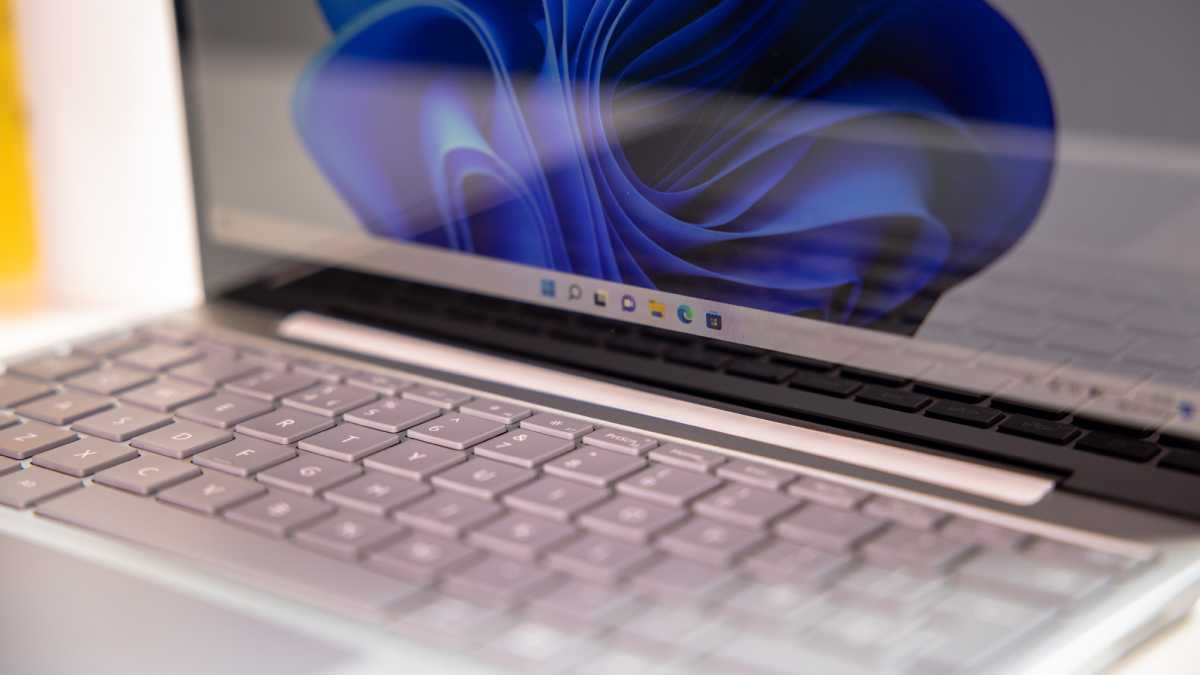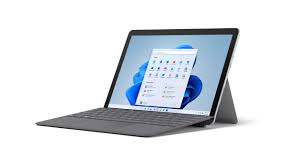The Surface Laptop Go is the cheapest laptop Microsoft makes, but it offers all the fundamentals of a great portable computer.
That was particularly true on 2022’s Laptop Go 2, which delivered good performance, decent battery life and one of the best keyboards around, all within a thin and light design. With a starting price of $599.99/£529, it can just about be considered a budget laptop.
A third generation is thought to be just around the corner, but don’t get your hopes up for any wholesale changes. Here’s everything you need to know about its potential release date, price and key specs.
When will the Surface Laptop Go 3 be released?
According to Zac Bowden at Windows Central, a usually reliable source of Surface news, the Laptop Go 3 will begin shipping in the “October/November time frame”.
0 seconds of 0 secondsVolume 0%
Microsoft usually holds a Surface event each September or October, so it’d make sense for the device that launch to be released a few weeks later. It was a year and a bit between the release of the first two generations, something which looks like it’ll be repeated:
- Surface Laptop Go 2 – June 2022
- Surface Laptop Go – October 2020
How much will the Surface Laptop Go 3 cost?
Windows Central is the only source of information here once again, with sources close to Bowden suggesting the Laptop Go 3 “will start at a higher price point than its predecessor”.
This is supposedly due to Microsoft ditching the current $599/£529 entry-level model, which features only 4GB of RAM. Instead, all consumer-focused configurations will feature a 12th-gen Intel Core i5 processor, 8GB of RAM and a 256GB SSD.
That configuration of the Laptop Go 2 costs $799/£799, so you might have to pay at least that much for its successor.
However, this isn’t guaranteed: we may still see a more affordable model arrive. Of course, Microsoft will want the Laptop Go 3 to remain cheaper than the upcoming Surface Laptop 6.
What will the Surface Laptop Go 3 specs and features be?
Again, the main rumours so far come from Zac Bowden at Windows Central. According to his “sources”, a 12th-gen Intel Core i5 processor, 8GB of RAM and a 256GB SSD will be present on all consumer models. There may be some variation when it comes to business and education versions, though.
If true, this will be a big change compared to the Laptop Go 2, which has three different configurations to choose from. But opting for a 12th-gen Intel CPU rather than something from the latest 13th-gen range isn’t a surprise – the Laptop Go has always been one generation behind.
Bowden says you can also expect a slightly longer battery life, but that this will be a result of the improved CPU power efficiency rather than an increase on the current 41Wh capacity.
Elsewhere, there are apparently updates under the hood to make components easier to replace, plus some new AI features focusing on improving microphone quality. The ARM-based Surface Pro 9’s Voice Focus feature may be among them, but it currently requires a separate Neural Processing Unit (NPU).
But given how much Microsoft appears to be focusing on AI within Windows 11, this wouldn’t be a surprise. The Laptop Go 3 could ship running the 23H2 update, where AI features are also expected to be the highlight there.

Dominik Tomaszewski / Foundry
If Bowden’s report turns out to be accurate, that’s where the changes will end. So expect the same 12.4in LCD touchscreen with slim bezels, four ports (Surface Connect, USB-A, USB-C, 3.5mm jack), 720p webcam and fingerprint sensor built into the power.
The trackpad and full-size keyboard were already impressive, but there’s no sign of backlighting coming to the latter. Expect a weight close to the Laptop Go 2’s 1.16kg, though, which still makes it extremely lightweight and portable.




